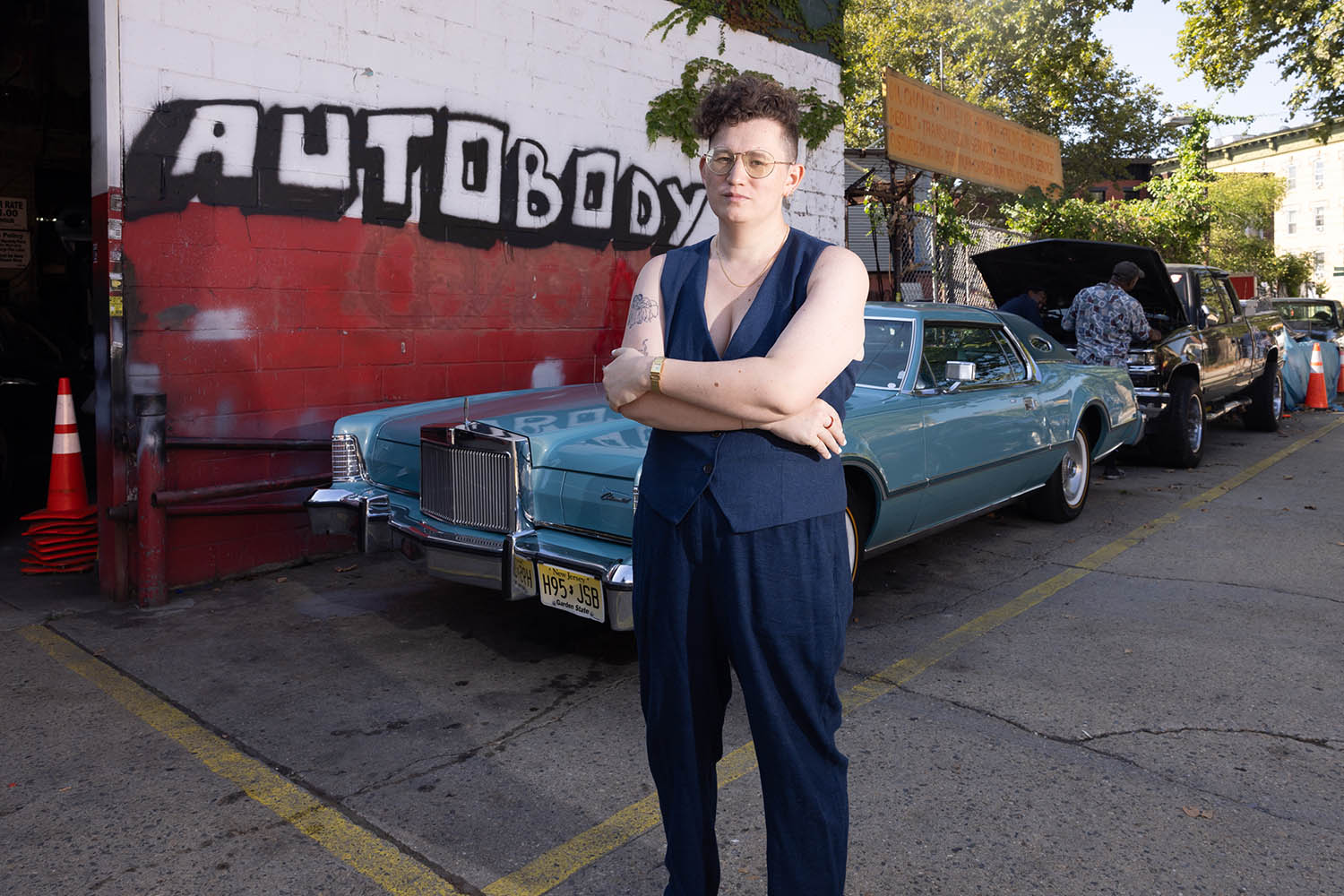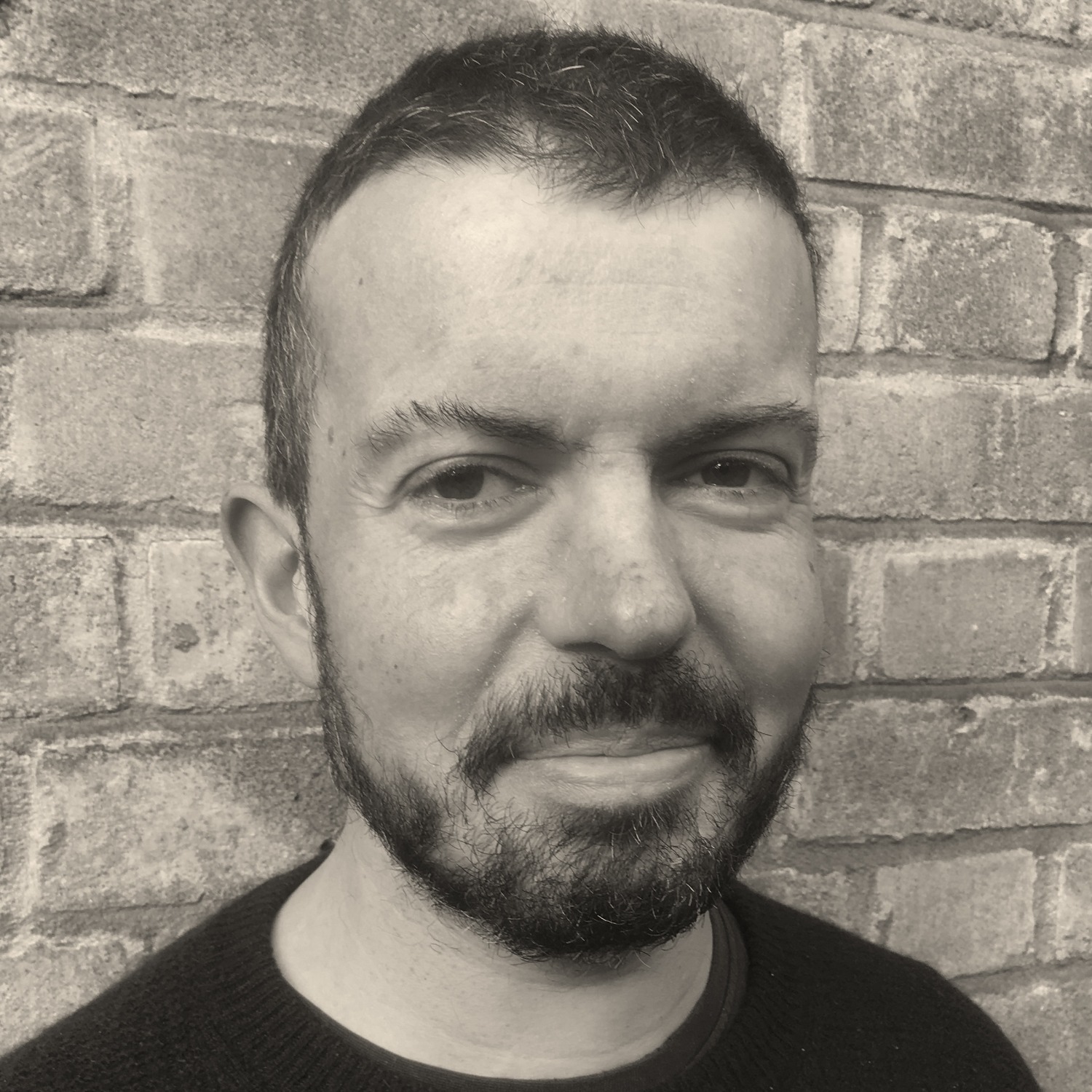Portrait by Christopher Lane
Andrea Long Chu, 32, is the Pulitzer-winning literary critic of New York magazine, cited for “book reviews that scrutinise authors as well as their works”, several of which are collected in her new book, Authority: Essays on Being Right. A rigorous thinker armed with a killer turn of phrase and a seemingly bottomless appetite for archival spadework, her reviews – published five or six times a year since 2021 – offer some of the most distinctive and keenly awaited takes on names such as Sally Rooney and Rachel Cusk.
Speaking from her home in Brooklyn, Chu tells me she prefers to write about books that “are too big to ignore”, not unheralded debuts. She is drawn to writers such as Zadie Smith, for example, where “there’s a body of evidence that lets me do the investigative work I’m often most interested in. I think many pieces of art encrypt a memory of their making, and I just love looking for it – it’s like trying to find the serial number on someone’s hip replacement.”
Chu’s 5,000-word essays take two months: two weeks to draft, two to revise, with the rest devoted to reading, not just the book under review but anything else that might be relevant, very broadly construed (the week Chu spends scouting angles of approach is one of her favourite parts of the process).
Reviewing Hanya Yanagihara’s 2022 novel To Paradise – the essay that won her the Pulitzer criticism prize, collected in Authority – she noticed that Yanagihara’s previous novel, A Little Life, contained a throwaway description of a visit to Hanoi that echoed the author’s prior description of a trip there for Condé Nast Traveller. How did she find that?
“I was combing, just trying to read [everything Yanagihara had written]. The piece no longer existed online. There were links to it, but I couldn’t find the actual content. So I called Condé Nast and asked: ‘Do you have any copies of this issue?’ It had 10 left. The woman I talked to was bewildered, but the issue came. I read this 20,000-word article and was like: ‘Oh my god.’ It did feel like a smoking gun. It’s hardly criminal – at worst, it’s plagiarising yourself a little – but the sense in which it is a smoking gun is to see her actually writing in that moment. It brings you closer to the scene of my writing, too: you see my crassness.”
Part of what makes Chu’s criticism so thrilling is the sense that there’s no tool she won’t use. A dab hand with a brisk putdown, she panned Bret Easton Ellis’s memoir White – about the encroachment of cancel culture on gen X freedoms – by saying: “A man who sees Nineteen Eighty-Four all around him might just be stuck in the 80s.”
“I forgot about that line,” Chu tells me. “Yeah... that’s really good! Often, I’m writing that kind of thing down much earlier in the process, and then it becomes a question of: ‘How can I create some sentences or a paragraph such that this line is possible?’ I get the punchline then write the setup. If you just said: ‘Bret Easton Ellis is stuck in the 80s,’ it would feel arbitrary and boring. There are probably people who read me and disagree at every turn, but read me because of the style. It’s what keeps me employed: it’s a meal ticket.”
Many readers know Chu not primarily as a literary critic but as a transgender author who has argued for the right to change sex at any age (“a question of redistributing biological wealth”, she has written, in a typically provocative aside). In Authority, she calls it a “leftist value”, still “unassimilable for great swaths of the [American] population”.
Her own experience of transition, as a postgraduate student recently arrived in New York from North Carolina, was among the subjects of her first book, Females, published in 2019 and recently reissued. A mix of gender theory, cultural criticism and memoir, the book was discomfitingly candid about her pre-transition sexuality. “Obviously, it’s the easiest thing for someone to use against me or other trans people [by saying], well, she’s just a cross-dressing paraphiliac. But I also had a girl come up to me on the subway a week or two ago and say: ‘Your piece helped me come out.’”
On Liking Women – her first piece, written when she was 24, and the earliest essay in Authority – defines transgender identity as a matter of desire rather than ontology: what one wants, not what one is. The essay argues that transgender advocates tend to shy away from that idea, not simply to quell fears that trans people “want to get stuff”, but also because it contradicts the “silky condescension” of the phrase “trans women are women” – you can’t want to be something you already are, Chu argues.
“I think many pieces of art encrypt a memory of their making – and I just love looking for it”
“I think many pieces of art encrypt a memory of their making – and I just love looking for it”
She reckons this dimension to her thinking initially made her attractive to her numerous political opponents: “They had begun to sense the orthodoxy they perceived to exist on the left, and so found [my] questioning of pieties to be very appealing,” she says. (When, in On Liking Women, Chu brings up various slurs on transgender women as “gropey interlopers”, she writes: “I happily consent to this description.”)
Some hostile readers might have pictured her becoming a strategically useful anti-woke columnist, she imagines: “I think they hoped I’d be the Thomas Chatterton Williams of trans people, and I’m not,” says Chu, alluding to the self-identified “ex-black” critic of social justice movements.
Chu wrote a new afterword to Females this year, partly to frame the book as the product of a particular moment in time. It was written when she was an unhappy graduate student in comparative literature, living in New York for the first time, with very few friends and having switched from studying drama. “Transition happened in the middle of that. For the most part, it was a supportive experience, but in retrospect I think there was more discomfort than I wanted to acknowledge – other people’s discomfort.”
If academia was miserable, study was not. “I gave myself reading lists because I’d finish all my reading, then I’d do the next week’s reading because I had nothing else to do. Then I’d read an extra book on the weekend. I loved that almost monastic relationship to reading books and still have it.”
Chu’s reading habit came early. She demonstrates over the screen of our video call how she will still drink out of the side of her mouth because of her childhood tendency to sip a can of fizzy drink while holding a paperback close to her face with the other hand. Science fiction and fantasy was her jam: Isaac Asimov, Tolkien, Orson Scott Card, Lloyd Alexander. “I was reading instead of having friends,” she says.
Escape via the printed word took many forms. Raised Presbyterian in North Carolina by a doctor of Chinese descent, she tells me she would leaven the dullness of Sunday service by furtively reading the Westminster Confession of Faith, the 33-chapter evangelical doctrine printed in the back of her church’s hymn books. “I do it even with my pieces. I’m almost always interested in the writer [under review], but I’m like: ‘OK, I’m going to read [an author’s new book] but really I’m going to read [Antonio] Gramsci.’”
Chu agrees that “it is a little like procrastination”, when I tentatively float that possibility. “But some of the best ideas I get are from going into those rabbit holes. My Sally Rooney piece [a review of the novel Intermezzo, published under the headline ‘A lover’s theory of Marxism’] turns in my mind on some letters that Karl and Jenny Marx wrote to each other in 1845. The piece couldn’t be about that, but that’s where the idea comes from. And often I can walk it back out and find that it actually can apply without having to go into the weeds. It’s trusting my nose.”
Having recently reviewed the Vietnamese-American writer Ocean Vuong – which provided an opportunity (long sought, Chu tells me) to write in passing about Chinese script – she was amused by a recent viral takedown in the London Review of Books of his new novel, The Emperor of Gladness, substantially devoted to quoting Vuong’s most florid lines.
“I get it; I recognise those phrases and I find a lot of [the book] ridiculous,” says Chu. “But my piece was trying to learn something – it was productive, ultimately, to engage with that work. It’s about making it worth my time. If you fail to produce any distance between oneself and the object, we’re basically reading a journal entry – that can be very entertaining, but [a review] has to survive your negativity.”
Authority: Essays on Being Right by Andrea Long Chu is published by Hutchinson Heinemann (£20). Order a copy from The Observer Shop for £18. Delivery charges may apply
Newsletters
Choose the newsletters you want to receive
View more
For information about how The Observer protects your data, read our Privacy Policy

